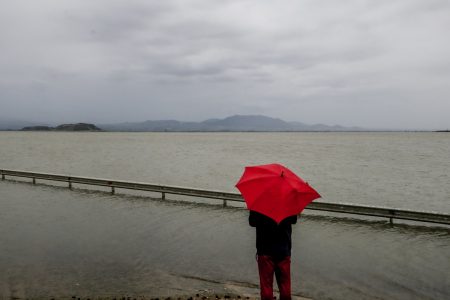Scandals upon scandals have beset our beleaguered country of late. Everyone is under suspicion. Everyone labours under the watchful eye of the judiciary, tax authorities, or both.
Businessmen, bankers, publishers, and politicians, some justly and some clearly unjustly, are defamed every day, victims of leaks and untrammeled rumours that they stole, bribed, or were bribed.
Characteristic of the indiscriminate prosecution are the prosecutors’ probes of even proper loans, which are being properly serviced. In such cases, prosecutorial authorities ask banks about the interest rate and the arrangements under which certain loans are being serviced.
Many question whether monetary authority has been ceded to prosecutors and courts.
This creates the impression that we are confronted with an endless witch-hunt, an organised and targeted “revelation”, with a political operation that neither cleans up nor liberates, but rather binds and leads to inertia.
If one takes into account the legal response of the accused, the lawsuits that they file and their reactions, then one sees that the country is about to be transformed into a boundless courthouse, with all that this implies.
This entire operation, unfortunately, is taking place at a time that Greece faces external threats and seeks national unity and consensus, as well as the mobilisation of economic and social forces for the recovery and reconstruction of the country.
, from prosecutor to prosecutor, and from court to court.
Nobody disputes that all those who sinned and caused harm to the Greek people, especially those who undertook the task of serving democracy, should be investigated and pay a heavy price.
However, a state and society are obliged to ensure the proper meting out of justice, and to discern what is of paramount and of great importance.
After eight years of economic crisis, and after a long cycle of wear and degradation, the paramount objective is to create conditions that allow reconciliation and rapid reconstruction and that can speed up growth.
Greece now should be preoccupied with how it will return to normalcy and how life will be organised over the next decade. The country now needs a democratic middle class revolution. Instead, we are going forth divided on a road leading to losses.
With the political leadership deeply divided and unable to prudently manage national issues with understanding and concord, with businessmen persecuted and bankers afraid to sign a loan arrangement or issue a new loan, one cannot be freed from the bonds of the crisis or create conditions for growth and prosperity.
On the contrary, and unfortunately, the domestic front is creating conditions of national disaster, instead of an environment of regrouping and reconstruction.
/





